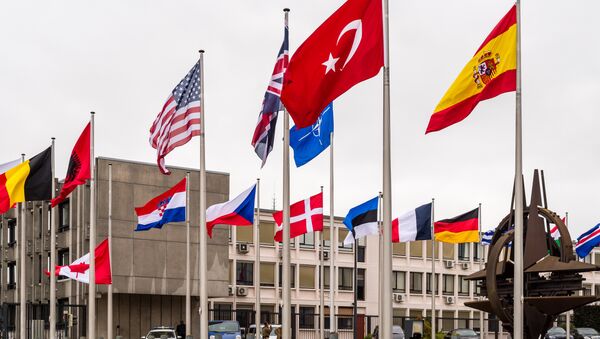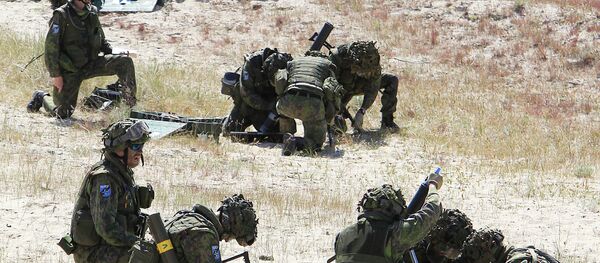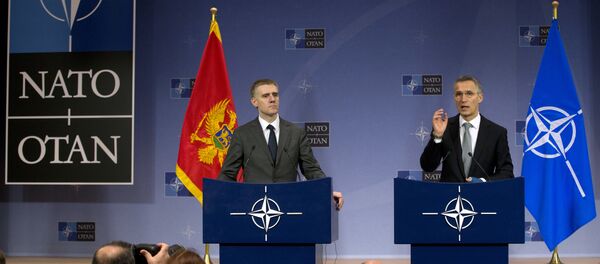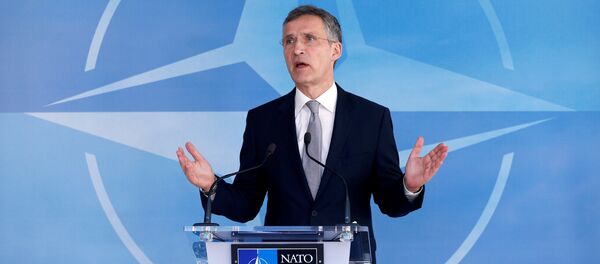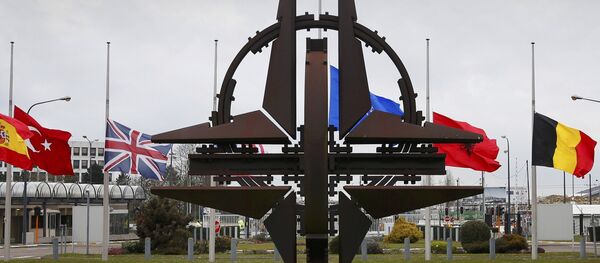Such a premature announcement was harshly criticized by Moscow.
"There are procedures under which if someone wants to convene the NATO-Russia Council, there should be consultations and consensus. And if one is invited through a microphone without prior consultations, it says that the people are being guided by other interests. We have not been approached [on the issue]," Russian Foreign Minister Sergei Lavrov told journalists.
In turn, Russian Envoy to NATO, Alexander Grushko noted that the current agenda does not include a meeting of the council.
"There are no signs that NATO is ready to return to normal relations," he added.
On May 20, Stoltenberg had to clarify his words.
"We are now looking into a possibility of holding a new meeting on the NATO-Russia Council. It’s a broad agreement among NATO allies to try to have a new meeting, but of course we have to consult with Russia, to agree on the agenda," he said.
Moscow has repeatedly expressed concerns over NATO’s increasing activity on its eastern flank.
"Overall, the further expansion of NATO from our point of view is more of a process with a minus sign. This process […] raises the degree of tensions on the continent," Kremlin spokesman Dmitry Peskov commented.
The imputes for the urgent meeting of the Russia-NATO Council can be explained by the fact that at the Warsaw summit NATO is expected to approve decisions that would make dialogue with Moscow extremely difficult, Sergei Ermakov, analyst at the Russian Center for Strategic Research, told Svobodnaya Pressa.
"These decisions are not only about NATO’s expansion. The point is that after the summit the alliance would have chances for a significant buildup in Europe," he pointed out.
However, the most important that at the upcoming summit the US is likely to address the issue of a mechanism to make urgent decisions within the alliance, the analyst suggested.
"American experts say that the principle of consensus doesn’t work well in the current situation, especially when NATO needs to deploy its Response Force. Thus, the consensus principle may be replace with a more effective one," Ermakov said.
According to him, if the alliance approves a new approach it would give the US the right to dictate its will to NATO.
Currently, Washington is transforming NATO into what it was during the Cold War, a military bloc aimed against Russia. But some countries within NATO, including France and Germany, are opposing the trend. They insist that the increased military buildup will not help settle tensions with Russia. Paris and Berlin have been insisting on dialogue with Moscow.
The US wants a meeting of the Russia-NATO council before the summit in a bid to justify the militarization.
"Washington would say that there is a mechanism to resolve tensions with Moscow — the Russia-NATO Council – and it works well. The US wants to imitate a consensus with Moscow," the analyst explained.
"Many Europeans are angry about Washington’s interference in Europe’s affairs, including military projects and the Trans-Atlantic Trade Partnership (TTIP). Many in the EU understand that TTIP is a geopolitical initiative, not just commercial," Ivashov said.
Thus, the US needs to imitate a thaw in relations with Russia to continue its policy in Europe, he added.
NATO will likely use its upcoming summit in Warsaw to further its strategy of building up the bloc's military capabilities close to Russia's borders, military expert Igor Korotchenko told RIA Novosti.
According to him, the alliance does not want to have dialogue with Russia to address Moscow’s concerns over the bloc’s increasing activity in Europe.
Instead "NATO will try to talk around the real problems, by imitating the dialogue" with Russia at the meeting, he said.
The alliance "will try to prevent Moscow from taking counter military steps by giving an appearance of discussing the existing issues," Korotchenko said.
